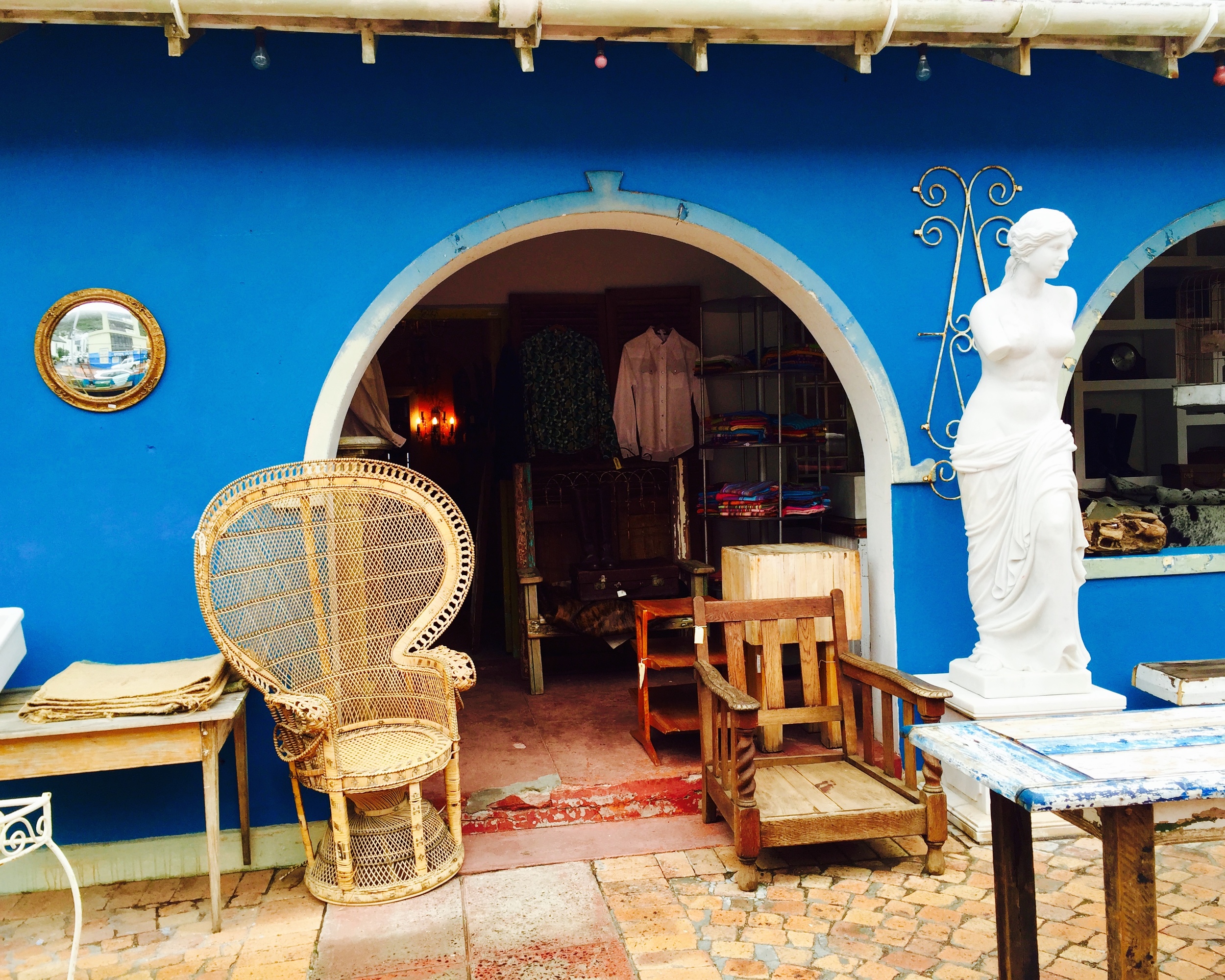Four Things to Consider While Souvenir Shopping
Hailey Fynaardt
One of my favorite things to do while traveling is to visit thrift stores and antique shops. There's something so much more fascinating about wandering through rooms filled with other people's belongings from another part of the world. Maybe that makes me creepy, or just curious, but I have always been a treasure hunter at heart. One thing most humans have in common is stuff and it always intrigues me to see what other people have chosen to part with. Sometimes, if I'm having anxiety about decluttering (I'm equal parts purger and sentimentalist) I'll go to a second-hand shop and look around. Somehow simply seeing the shelves and racks of things that people have gotten rid of gives me motivation to donate the things we don't need anymore, as well as buy less, much less, in the future.
Our own house is a small two-bedroom bungalow and hasn't changed much in terms of decor since we moved in, but I am always on the hunt for beautiful and unique items to add to the Habitation Co. shop. On our recent trip to South Africa we took a drive along the Eastern Cape through the eclectic harbor town of Kalks Bay and discovered a row of antique shops that blew me away. The first shop we went into almost completely did me in- from a huge copper bathtub, to the Edmond Fortier print of the Senegalese woman smoking (above), to the mid century end tables, I was seconds away from ordering a shipping crate. In hindsight, I probably should have. There's nothing worse than having non-buyer's remorse, especially while shopping abroad. Since this has come up a few times on my recent trips, I wanted to share a few tips on minimizing non-buyer's remorse while traveling.
I spy our "Swazi Girl" Tretchikoff Pillow!
My main reasons for hesitating while shopping abroad seem to be that I am simply overwhelmed with the selection or unsure if I'll find similar items at a better price point once I've gotten more familiar with the country or culture. Everything feels so foreign and exciting at first glance. To try to minimize my non-buyer's remorse on a tight traveling schedule and budget, I take a few different factors into consideration:
1. Where did I find the item? Obviously, if I'm shopping in a large market targeted at tourists, the likelihood of me coming across similar items at varying price points throughout my trip is pretty high. If I am in a small shop, art gallery, or sidewalk market chances are really good that the merchandise is better quality, more unique, and at a higher price point so if I really love something, I usually go for it. Honestly, I would rather worry that I slightly overpaid on something super unique than spend my vacation trying to hunt down a similar item or better deal.
2. Who made it? Our world is big, but I am always amazed at how many times I've picked up something while traveling and discovered it was made back in the US, or even in my own state. Alternatively, I've taken a business card or photo of a tag while traveling, in hopes of buying it later, only to find out that the artist/company doesn't ship overseas or have a website. If you find something amazing that is made locally, especially while traveling overseas, my advice is to buy it because the logistics of trying to buy it or order it again may be nearly impossible.
3. What's the backstory? This is rarely my motivation for buying something, but the general mentality behind souvenirs is that it is less about the actual object and more a memento of a time, place, and experience. The thing with most souvenirs is that the thrill of buying them fades quickly after the trip is over and the people you give them to aren't as interested in the item itself as in the stories of why, where, and how you acquired it. I would say, in general, try to avoid impulse souvenir buys at airports or major shopping centers, and instead look for simple tokens or uniquely beautiful or useful items that serve as a physical connection to the person or place you bought it from. For instance, the simple teak rolling pin I bought for my mother-in-law at an open-air market in India is practical and has a unique story behind it.
4. Would I buy this back home? Some of my very favorite and most-used souvenirs are more subtle- like a vintage dress from a consignment shop in New Zealand or a scarf in India. By looking at them, you'd never know where they come from but it's fun to be able to tell a unique story when people ask "where did you get that?!". On the other hand, a more overt purchase- like a beaded kudu head from South Africa or embroidered pillow from Guatemala, speaks for itself. If you would likely buy it back home if you saw it in one of your favorite stores, buy it while you're traveling, because chances are you won't find it again, and it will haunt you in photos on Pinterest or you'll see similar items pop up in stores a few months later but they won't compare to the original.
Happy travels and successful treasure hunting on your next adventure!
Hailey














